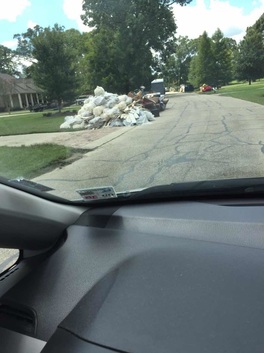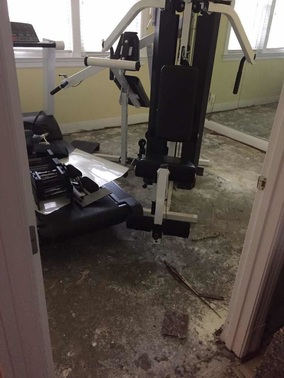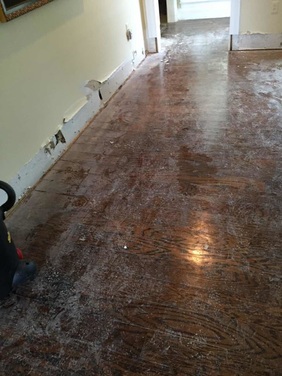|
8/21/2016 0 Comments Louisiana's Epic Flood The southern Louisiana was absolutely devastated by an epic flood last week. Tens of thousands of people were displaced due to this historically unprecedented flooding event. 13 people died of this event, 40,000 homes were damaged, and 20 parishes were declared Federal Disaster Area. For many residents in these communities, this flood was even more destructive than Hurricane Katrina. Here, I post some pictures of the neighborhood I used to live in. The street was full of trash in the aftermath. Inside the house after the water receded After the worst natural hazard since Super Storm Sandy, many coastal communities are facing a long recovery. When interviewed by NPR's On Point, my former doctoral advisor Dr. Barry Keim, Louisiana State Climatologist, was asked if this epic flood was related to climate change, Dr. Keim pointed out that it was difficult to determine an absolute link between climate change and a single event. His response highlights the key to understanding climate change. By definition, climate change refers to “a change in the state of the climate that can be identified by changes in the mean and/or the variability of its properties, and that persists for an extended period, typically decades or longer," according IPCC. Lay persons are more likely to be influenced by isolated extreme weather events when making judgments about climate change. More frequent extreme weather events, though, collectively form a pattern that can be attributed to climate change.
The economic damage from flooding in the coastal areas has dramatically increased over the past several decades. One effective way to mitigate excessive economic losses from flooding is to purchase flood insurance. In reality, only a minority of coastal residents however have taken this preventive measure. In order to understand the driving force behind individuals' decision to voluntarily purchase flood insurance, my coauthors and I examine how external influences and perceptions of flood-related risks together with socio-demographic factors affect this voluntary behavior in the U.S. Gulf Coast by using survey data merged with contextual data. This paper has been published on Water Research. Our findings indicate that estimated flood risks conveyed through FEMA's flood maps, intensities and consequences of past storms and flooding events, as well as perceived flood-related risks significantly affect individuals’ voluntary flood insurance purchase behaviors. The finding about FEMA's flood maps has significant policy implication that FEMA’s flood maps have been effective in conveying local flood risks to coastal residents, and correspondingly influencing their decisions to voluntarily seek flood insurance. Flood maps therefore should be updated frequently to reflect timely and accurate flood risks.
0 Comments
Leave a Reply. |
|






 RSS Feed
RSS Feed